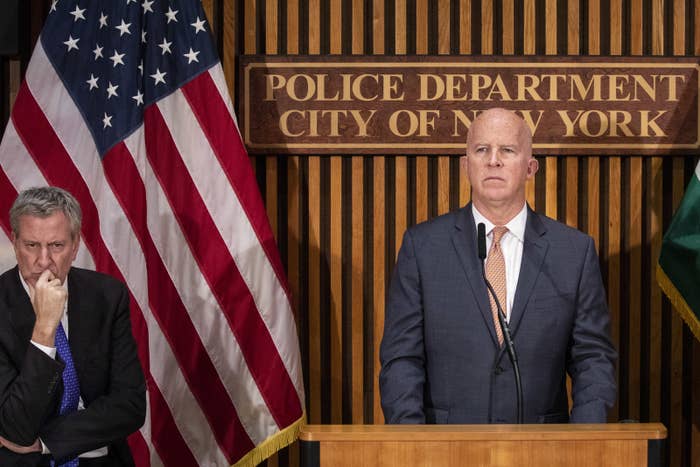
New York City’s police commissioner has been all but absent from a fight he promised to support: changing the state law that keeps police misconduct secret, state lawmakers said. With only a few days left in the legislative session, the legislators who proposed the new law said that they have not heard from him.
Last year, in the wake of a BuzzFeed News investigation into NYPD officers who lied and used excessive force, the commissioner vowed to push for changes to 50-a, the controversial state law that has kept officers' disciplinary records out of public view.
A bill introduced this year would repeal 50-a, bringing New York closer to the policies in several other states, like Florida and Texas, where police disciplinary records are largely available to the public.
But the authors of the bills, one in the Senate and one in the Assembly, say O’Neill has yet to deliver on his promises.
“Commissioner O’Neill has not reached out to my office in regard to any police transparency measures,” state Sen. Jamaal Bailey told BuzzFeed News. “It would be nice to hear from him.”
The police commissioner is making a visit to Albany this week, and his office says he will push for reforming the current law. NYPD spokesperson Phil Walzak, who pointed out that the commissioner has written about this subject in the New York Daily News and the New York Post, said this is the “optimal” time to speak with legislators because this is when final decisions are being made.
A coauthor of the bill, however, says that this late in the session, when legislators are scrambling to deal with other issues, it’s too hard to get anyone’s attention.
“Being engaged at this point indicates that it wasn’t a priority,” said Yanni Trittas, a spokesperson for Assembly Member Daniel O’Donnell, a Democrat who authored the Assembly bill. “The question still stands why hadn’t the commissioner come up months ago.”
BuzzFeed News’ investigation last year, based on hundreds of internal NYPD files, visits to officers’ homes, and court records, found that officers who committed serious crimes were, in many cases, allowed to stay on the job, with no warning to the public.
In the wake of its publication, O’Neill convened a panel of outside experts, who earlier this year found that the NYPD’s disciplinary system was plagued by “a fundamental and pervasive lack of transparency.” O’Neill said he would advocate for a change in the state law that would enable him to share more information. But he has previously warned that repealing 50-a entirely — rather than modifying it — “would pose a significant risk to police officers” and potentially lead to “threats against individual officers.” That concern echoes opposition raised by police unions representing NYPD officers.
Some other states have recently moved to expand transparency about police misconduct. Beginning in January, for example, a new law in California made police disciplinary information publicly accessible in cases where there was a shooting, use of force, and some other kinds of misconduct.
New York City police reform advocates have argued that a change like that is necessary to reestablish trust between police and the communities they serve.
Relatives of Eric Garner, who was killed when a New York City police officer wrestled him to the ground in 2014, joined others in a statement that said, “Unless the police secrecy law, 50a, is repealed this session, crucial information will continue to be hidden from Eric Garner's mother and the public.” An internal disciplinary trial against the officer accused of putting Garner in a chokehold, a violation of department policy, ended last week, though whether or to what extent the officer is punished may remain secret because of New York’s current law.
Albany’s legislative session ends June 19. Bailey said that if the bill doesn't pass, he plans to hold hearings and continue to push the issue in the next session.
